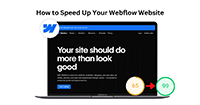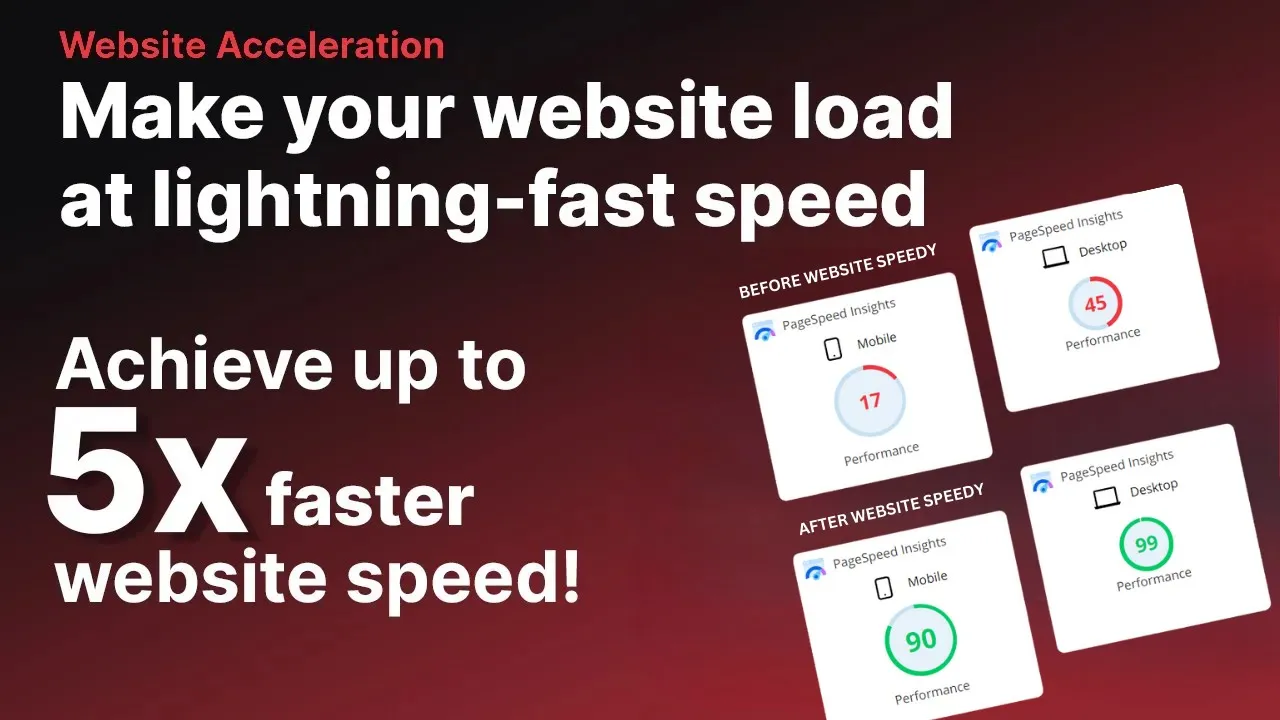How To Optimize Website Loading Speed?
Your website speed can be affected by your hosting provider, images, JavaScript, CSS files, and website fonts. To make your website faster, optimize these factors using the steps below. This list offers a complete speed optimization strategy.
Make Only a Few HTTP Requests
When your webpage loads, it asks the server for different things like pictures and scripts. Too many requests can slow it down. Reduce the number of requests by only loading what you really need and by compressing CSS and JavaScript files.
Switch to HTTP/2
HTTP/2 lets your site download multiple files at once using the same connection. This cuts down on waiting time for multiple requests. Moving to HTTP/2 can speed up your website by making things happen faster.
Compress Image Sizes
Big, uncompressed images can slow down your website. Resize your images to fit just right and use formats like JPEG or PNG. This helps things load faster, especially for people with slower internet.
Use Content Delivery Networks (CDNs)
CDNs help speed up your website by spreading out your files across multiple servers around the world. This means people can access your website's stuff more quickly, no matter where they are, making your website faster and optimized overall.
Optimize for Phones and Tablets
Many individuals access the internet via their phones. Ensure that the mobile version of your website functions and looks fantastic. Test it out on phones and tablets to make sure it's smooth and quick. This keeps people happy and coming back to your store.
Speed Up Time to First Byte (TTFB)
TTFB measures how long it takes for your server to start sending data to the browser. To speed things up, make your server and database work more efficiently. Aim for a TTFB below 200 milliseconds for a speedy website that users love.
Pick a Good Hosting Service
Choose a hosting plan that fits your website's needs and budget. Shared hosting is cheap but may slow things down. VPS and dedicated hosting are faster, while serverless options are both adjustable and cost-effective.
Compress Your Files with Gzip
Gzip compresses down your files, saving bandwidth and making your website faster. It squashes your HTTP responses, which means less time waiting for things to load. Using Gzip makes sure data moves quickly between the server and the browser.
Make Your Code Leaner
Combine your CSS, JavaScript, and HTML files together to cut down on requests. Take out any extra spaces and bits you don't need. Tools can help you do this, making your website zip along faster.
Load JavaScript Wisely
Load JavaScript in a way that doesn't slow down your site. Do it separately so the page keeps loading while fetching JavaScript. Put your script tags at the bottom of the page to speed up loading and improve the user experience.
Prepare the Browser with Prefetching
Help the browser get ready for what's coming next on your site. Use prefetching to tell it to grab certain resources in advance. This way, when people click, everything's ready to go, making your site feel snappy and responsive.
Keep Plugin Use in Check
Plugins can slow your website down. Make sure you really need all the plugins you are using. Remove any that aren't essential. Additionally, reduces unnecessary stuff and makes your website faster for everyone.



















































































